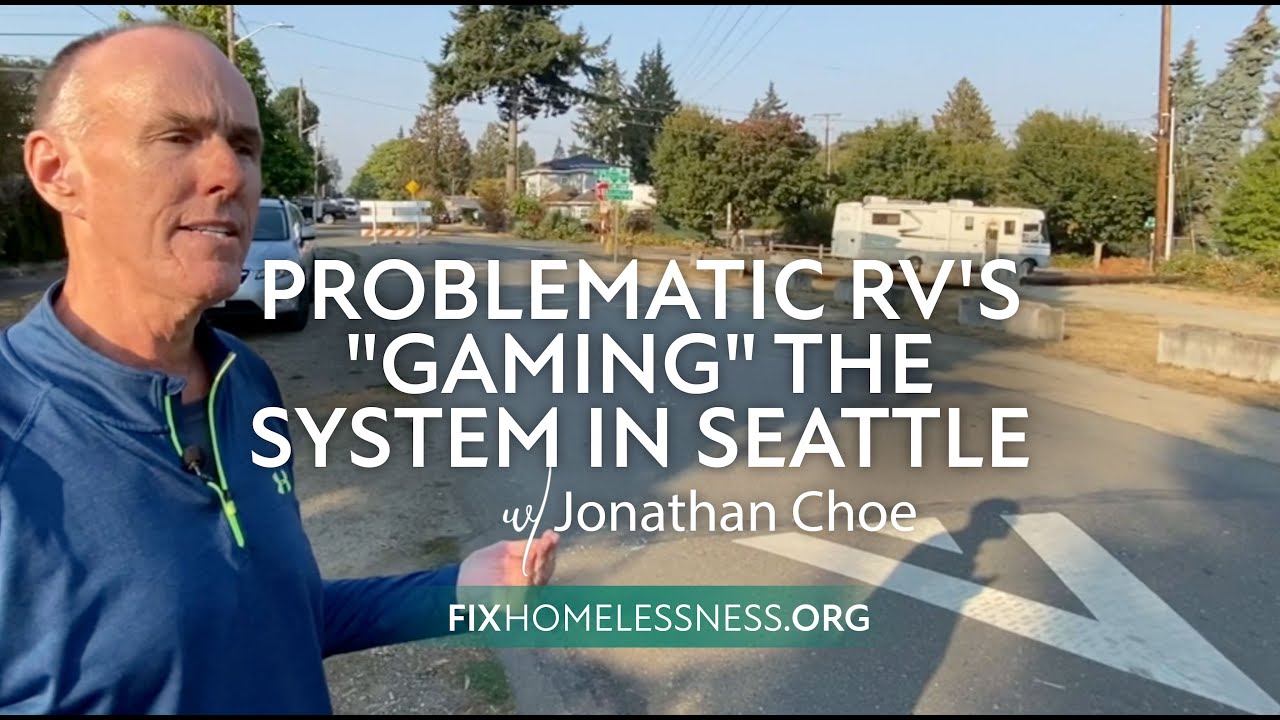Problematic RV’s “Gaming” the System in Seattle
Published at Fix HomelessnessA cleaning crew was met by 50 pounds of animal feces in an apartment home after the residents were evicted. The Tacoma property, south of Seattle, spent $8,000 restoring the home to conditions suitable for new residents. This costly clean-up came after the resident failed to pay rent for almost two and a half years, accumulating an unpaid balance of $37,120.
Not every eviction story is one of outlandish behavior or criminal activity. The majority, like this one, are of tenants who are unable to pay rent or unable to live sustainable and healthy lives on their own without adversely impacting the property, their neighbors, or the surrounding community. Typically, those two conditions are interconnected.
In this incident, property management was alerted about dogs on the unit’s patio following the eviction. When management and animal services arrived, two dogs and one cat were found. Sadly, one of the dogs was no longer alive and feces from all three pets covered the patio.
Details of the required repair and clean-up to make the home livable again paint a picture, not of a criminal, but rather someone unready to care for a home and pets. The cleaning crew had to remove large amounts of furniture in addition to “excessive amounts of trash, clothing, food items, toiletries” and more. The home was treated for fleas, repainted throughout, and the unit required an “extra heavy-duty cleaning” and full replacement of “severely soiled” carpets.
The stove was “too filthy to clean,” costing owners $700 to replace it for a new resident. Nine holes in the walls had to be filled, and all of the blinds and bulbs replaced. The removal of trash alone cost $1,720. This is a story of neglect — neglect that harmed pets, the property, and the property owners, not to mention the residents themselves.

In most situations, if someone else’s neglect cost you $45,120, the legal system would come to your defense. But in the world of landlord-tenant law, the legal system itself is what allowed the financial burden of a resident’s neglect to be borne by the homeowners for 29 months.
Neglect, especially neglect facilitated by a broken legal system, has trickle-down effects. For 29 months, property owners were effectively forced to provide housing without compensation and then were forced to pay in time and money to restore the home to a livable condition. Furthermore, the time and money lost here, repeated in thousands of similar situations across Washington State, contributes to rising housing costs and decreased housing supply everywhere, effecting families far beyond the neighbors in this living community.
Healthy cities and communities need a supply of housing that meets the affordability needs of their population. The path to that end is a marketplace where property owners benefit by increasing the supply of their goods and services. Property owners who face costly situations like the one above are far from incentivized to supply more housing. In fact, many are forced to increase rent to offset costs or remove property from the marketplace entirely.
Activists lobby for “justice” in the housing market. But the physical and financial burden of a resident’s neglect is a glaring contradiction to that goal. How much of that burden could you bear? Forcing homeowners to give away the use of their homes without compensation and neighbors to endure the consequences of behavior inside those homes is a far cry from justice.
